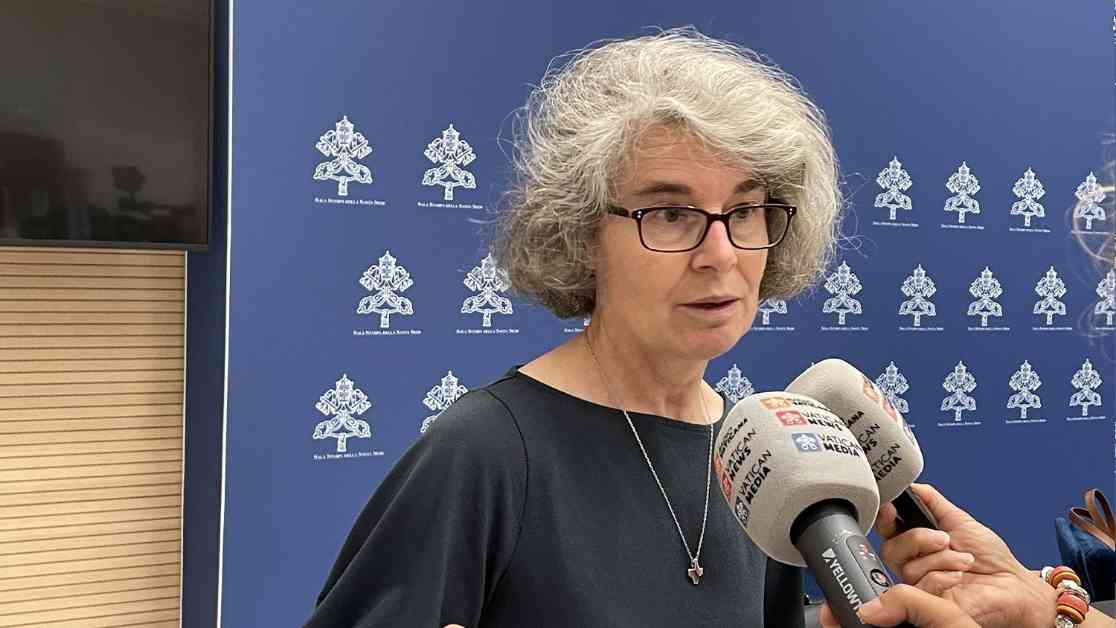As the second synod assembly wraps up this week, and the synodal fathers and mothers now work on the final document to be presented to Pope Francis, Sister Nathalie Becquart, undersecretary of the general secretariat of the Synod, believes progress is being made on the role of women in the governance of the Church: “We are always better when men and women are together, in service of the mission.”
“I am convinced that we can move forward step by step and achieve very concrete things so that it is understood that there is nothing in the nature of women that prevents them from holding very important positions in the leadership of the Churches,” said Cardinal Victor Manuel Fernández, prefect of the Dicastery for the Doctrine of the Faith, in a statement released on Monday, October 21, in response to accusations of inaction on the issue of the place of women in the Church. “What truly comes from the Holy Spirit will not be stopped,” he added.
Women in the synod’s work
During the daily press briefing on the progress of the second synod assembly on synodality, Sister Nathalie Becquart first addressed the assertion of women in the daily work of this synodal assembly. While last year, for the first assembly, “it was quite new for some to sit at a table with women,” just as “for some women, it was not easy to speak in a plenary session,” the synod’s undersecretary notes a real difference for this second session.
“This year, we have truly gained in quality of listening and depth of speech. I am delighted by the consideration given to the diversity of voices, including those of women, which have had a significant impact in small groups and in plenary sessions.”
A topic advancing for 20 years
Beyond the synod, the Xaverian nun believes that there are already many possibilities provided by the Code of Canon Law for women to hold positions of responsibility, such as “women presidents of a Catholic university.” “That did not exist twenty years ago,” she points out. She also mentions leaders of religious communities as well as parishioners, “such as in the Amazon, where many Christian communities are under the responsibility of a woman,” or the example of the position of general delegate, a mission of great responsibility in dioceses, often complementary to the missions of a vicar general.
A necessary complementarity
While applauding these advancements, Sister Nathalie Becquart regrets that despite the numerous possibilities, they “are not implemented in many cases.” A lack, in her opinion, because “we are always better when men and women are together, in service of the mission.” The synod’s undersecretary puts forth very concrete proposals, such as having a woman on the training teams of seminaries, and calls for a deeper implementation of the integration of women into the Church’s leadership bodies. She concludes by looking at the purpose of having more women in the Church: “It is always a service for the mission.”
Thank you for reading this article. If you wish to stay informed, please sign up for the newsletter by clicking here.

















